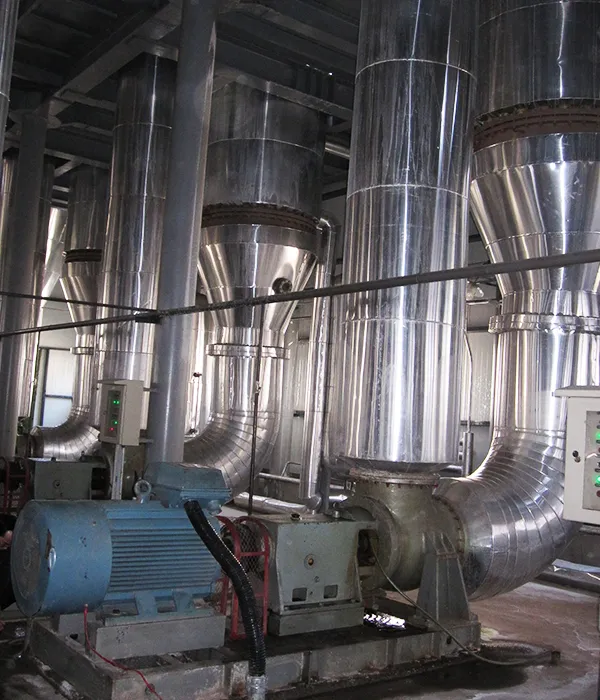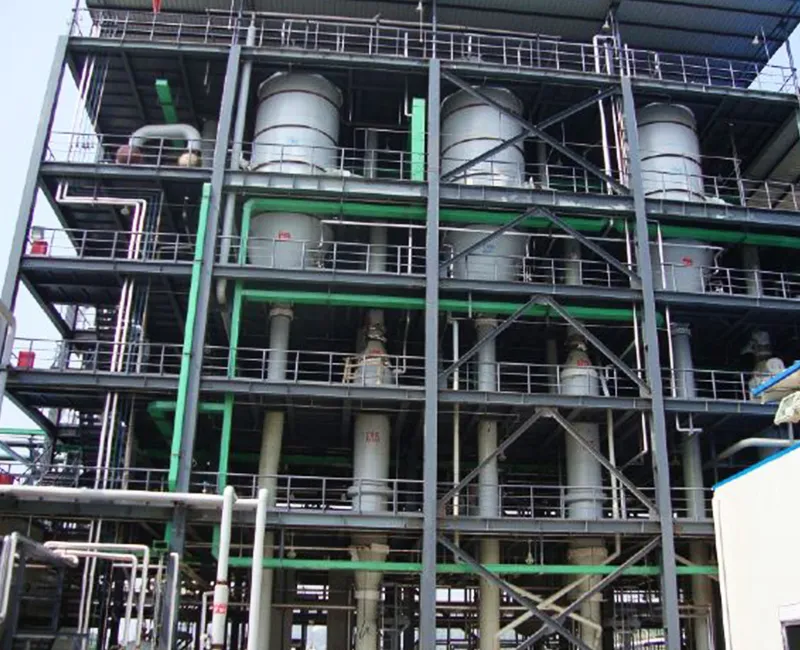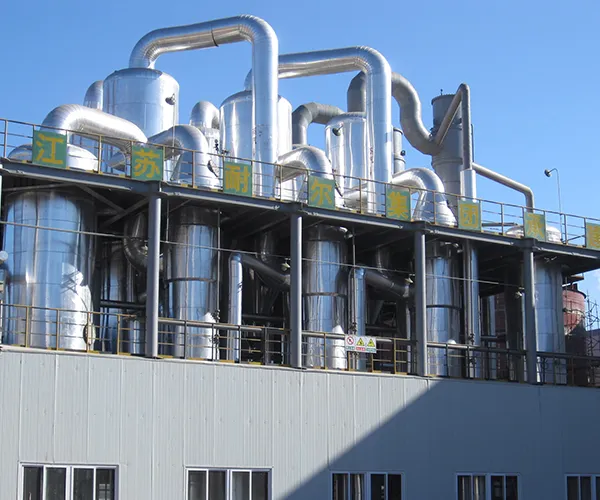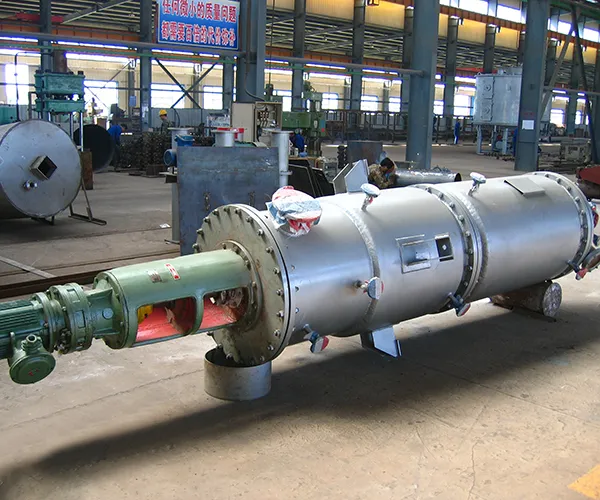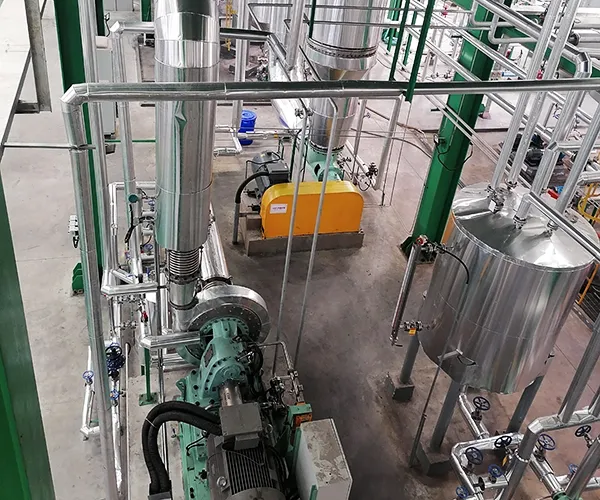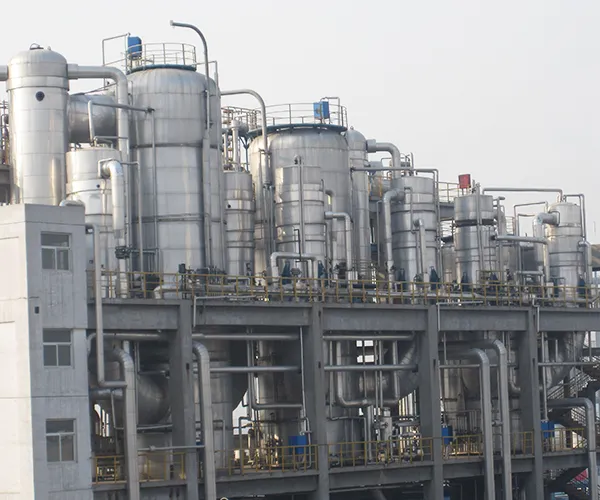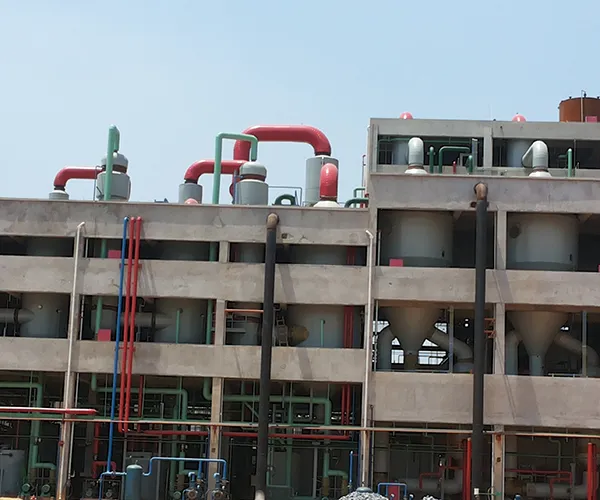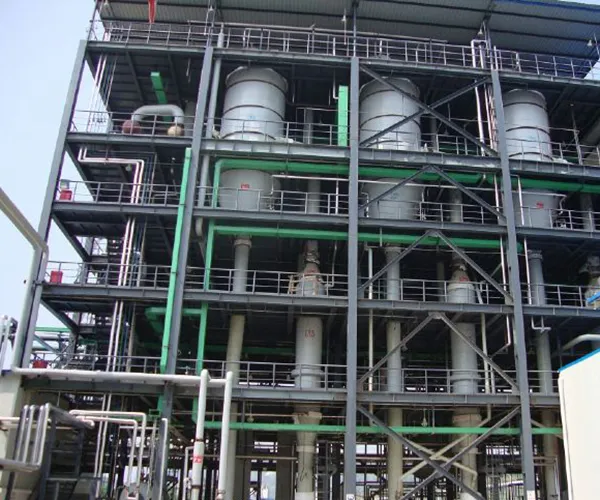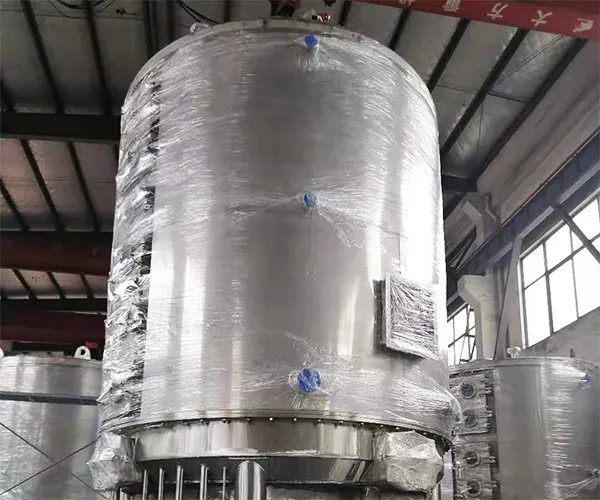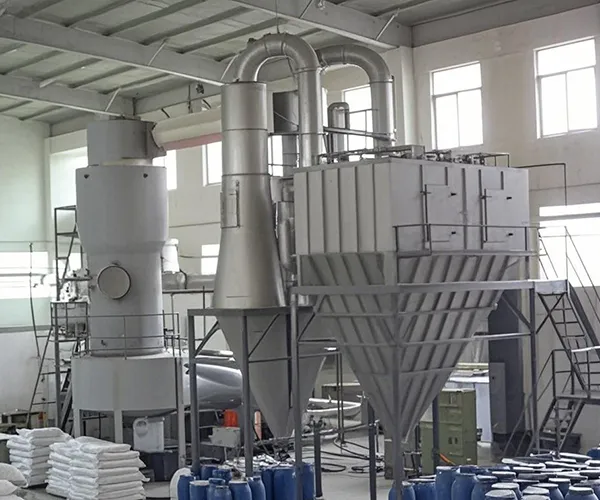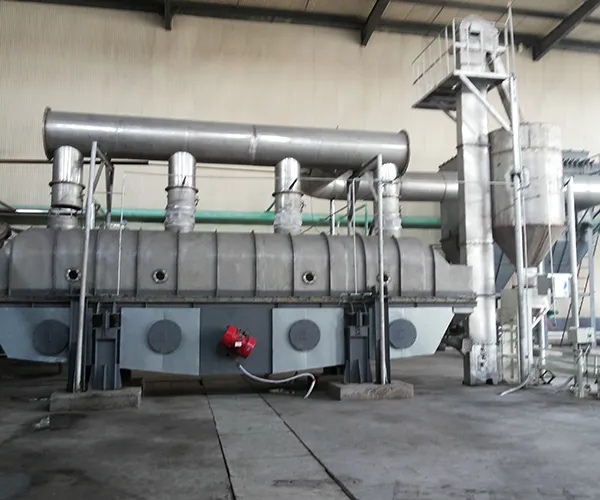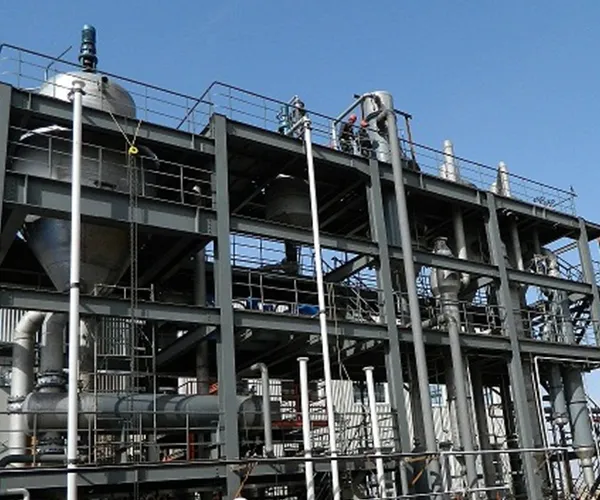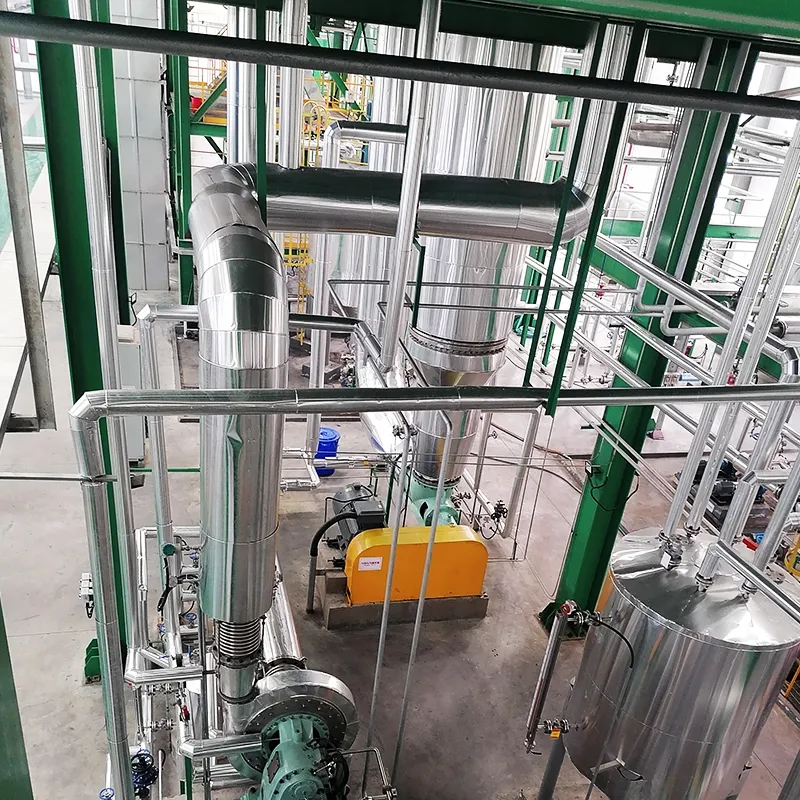Industrial Evaporation Equipment
Forced Circulation Evaporator
Industrial Evaporation Equipment
Forced Circulation Evaporator
The forced circulation evaporator is designed to enhance the flow velocity of liquid solutions by using an external circulation pump, ensuring efficient heat transfer and minimizing fouling or scaling. It is suitable for viscous liquids, slurries, or solutions with crystallizing components.
The forced circulation evaporation system can be built with either a horizontal or vertical heating chamber, and the liquid circulation rate, ranging from 1.2 to 3.0 m/s, is adjusted through the pump. Lower speeds are selected when dealing with suspensions containing more crystals, lower pipe hardness, or higher viscosity fluids.
Depending on the position of the feed and return connections to the separator, the evaporation system can be configured as a forward-circulation or reverse-circulation evaporator. The heating tubes may be designed as vertical or horizontal, with single-pass or double-pass layouts, all customizable to meet specific process requirements.
Forced circulation evaporators are widely used across industries for concentration, crystallization, and separation processes including:
- Chemical industry: Concentration, purification, and separation of various chemical solutions and intermediates.
- Pharmaceutical industry: Purification of antibiotics, vitamins, and concentration or drying of active pharmaceutical ingredients (APIs).
- Food & beverage industry: Concentration and dehydration of fruit juices, dairy products, and other liquid food ingredients.
- Environmental & Industrial Waste Treatment: Treatment of wastewater and industrial effluents, enabling resource recovery and reduction of discharge volume.
What types of materials can a forced circulation evaporator handle?
How do I select the right forced circulation evaporator?
Selection depends on several factors, including:
- Your processing needs (e.g., feed characteristics, throughput, and target concentration)
- Performance (e.g., evaporation rate, energy efficiency)
- System reliability and maintenance requirements
- Total investment and cost-effectiveness: It’s also important to evaluate the supplier’s technical expertise and track record with similar applications.

